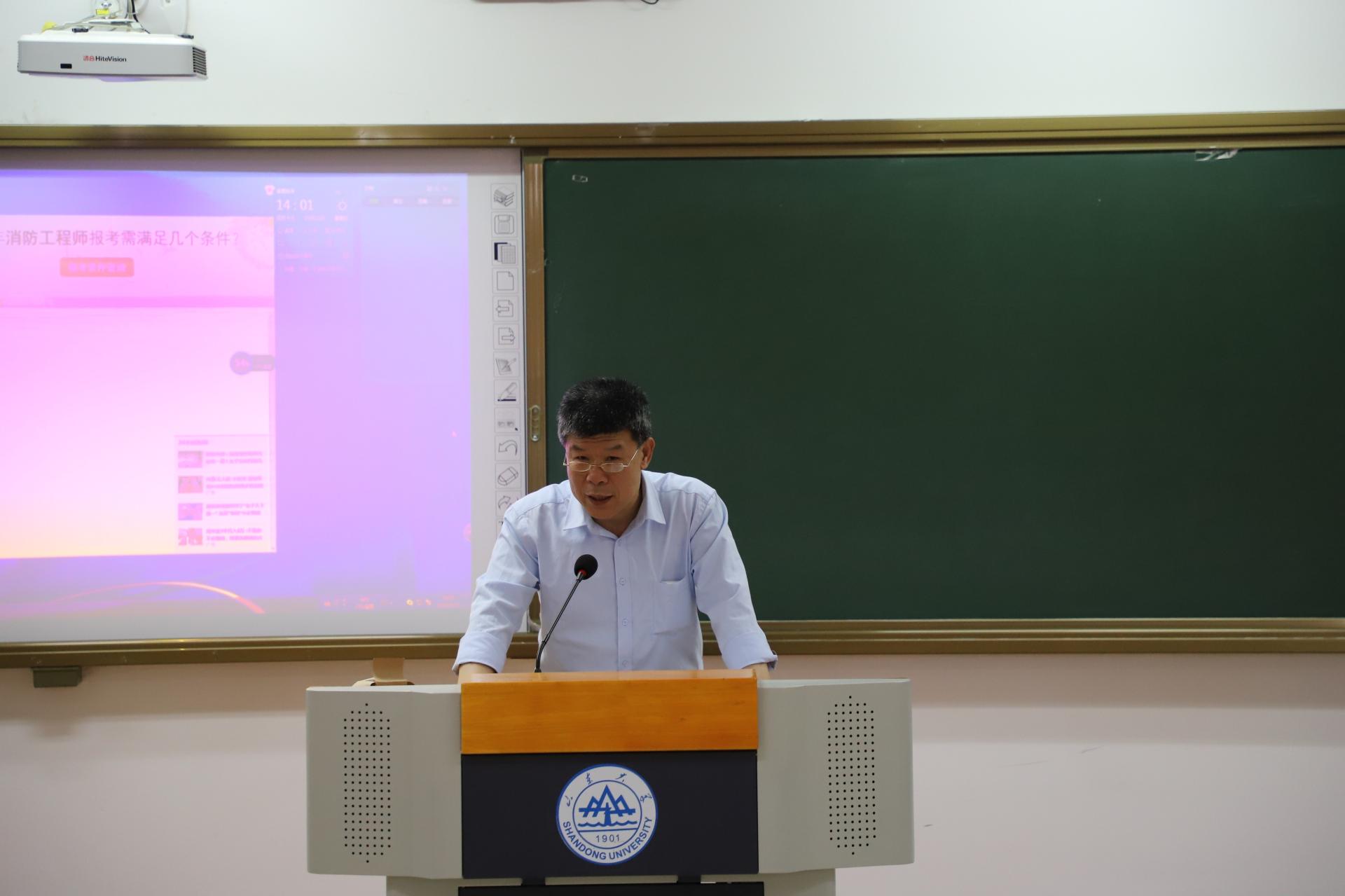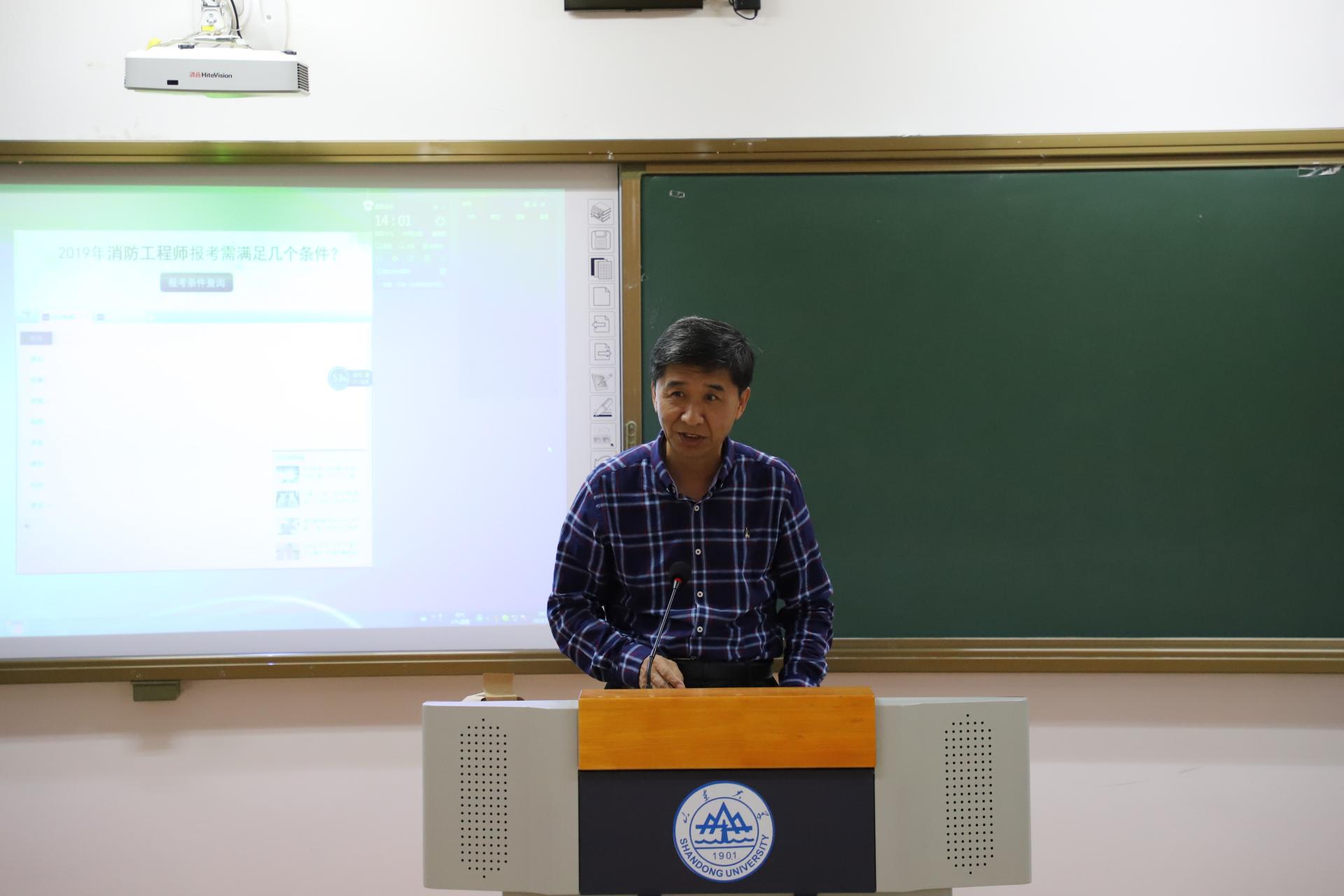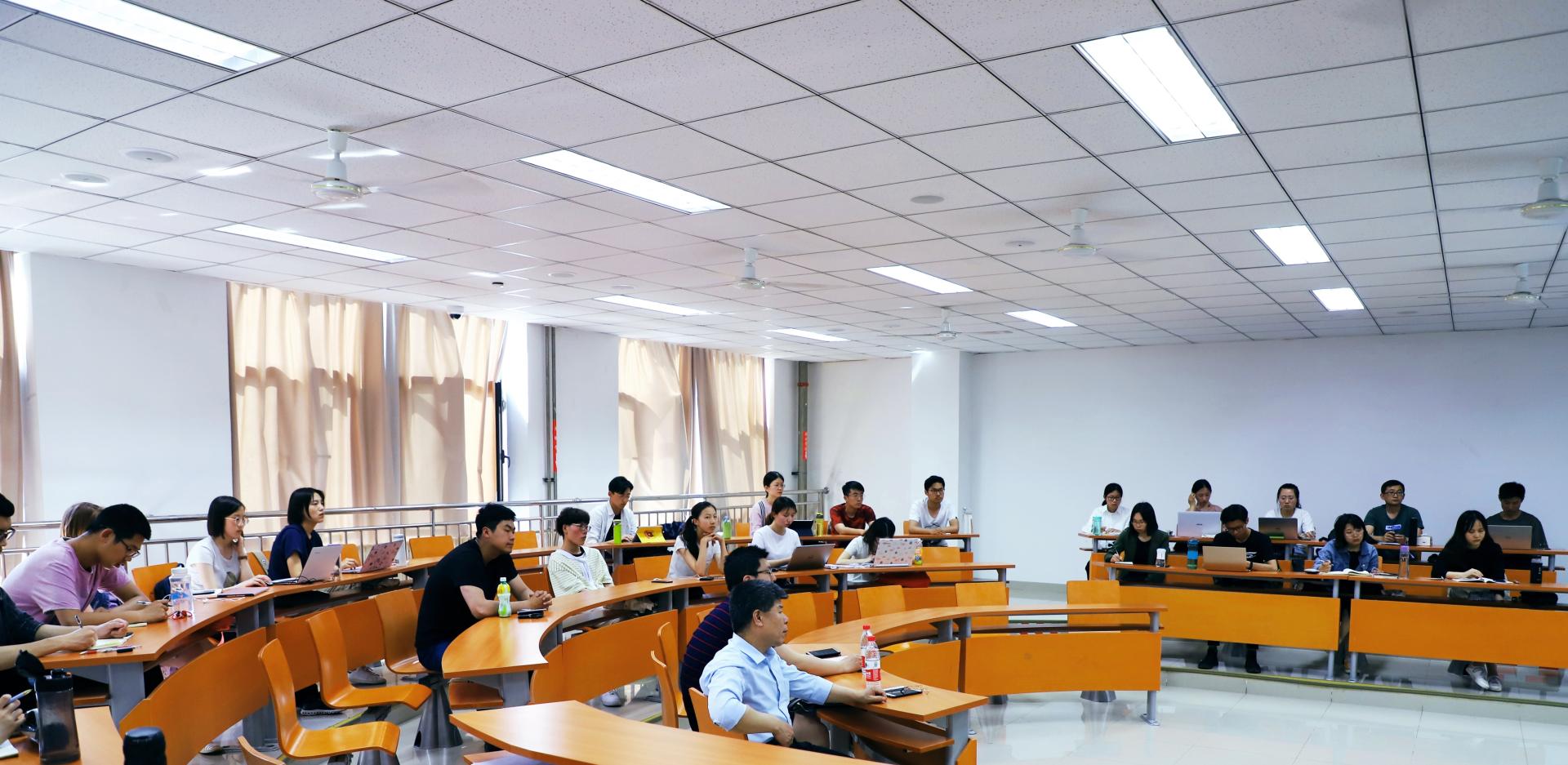On May 23th, Professor Li Yongquan from University of Chinese Academy of Social Sciences gave an academic lecture titled “Trials and Hardships in 70 years: Retrospective and Prospective Sino-Russian Relations” at the invitation of the School of Political Science and Public Administration (SPSPA) of Shandong University. Ma Fengshu, Director of the Institute of Russian and Central Asian Studies of Shandong University and professor of SPSPA, hosted the lecture. Professors and students of SPSPA as well as those from other related majors attended the lecture.

In his report, Professor Li introduced the development of Sino-Russian relations in the past 70 years with abundant and detailed historical materials, from the Sino-Soviet alliance to their following split, from to the rapprochement that lasts until today’s China-Russia strategic partnership of coordination. He studied some significant historical events in Sino-Russian relations, summarized the current warming trend of Sino-Russian relations and drew on some experiences.

Professor Li pointed out that China and the Soviet Union made an alliance for mutual benefit. China’s Socialist path needed the experience and assistance from the Soviet Union. He said that the Chinese Communists accepted Marxism to build a socialist country and learned from Soviet theory and practice, the world’s first socialist country. At the same time, under the unique historical conditions, the new People's Republic of China’s socialist modernization, led by the Communist Party of China for building a socialist country, was surrounded and blocked by hostile countries. Therefore, creating a peaceful, stable and safe environment for development became a top priority. As for Soviet Union, it expanded its influence around the world through the alliance with China, especially in the socialist camp. The main reason for the breakdown of the Chinese and Soviet alliance is their attitude towards national sovereignty, which is signaled by the divergence between China and the Soviet Union over the issue of radio stations and the building a joint submarine fleet. Professor Li pointed out that there was no winner as the Sino-Soviet relations worsened from splitting to confrontation, since both sides suffered huge damage.
Current Sino-Russian relationship is built on the Five Principles of Peaceful Coexistence, and the China-Russia strategic partnership of coordination has become a good example of how major countries should interact with one another. Facing the world's profound changes unseen in a century, Professor Li said, if China and Russia make the effort to integrate their respective development strategies, maintain close communication and coordination on regional affairs, and strengthen strategic corporation on international affairs, they can make a great contribution to regional and international stability, peace and development.
After the lecture, professors and students actively raised their questions. Professor Li responded to the questions in detail. In the end, Professor Ma Fengshu summarized the lecture.

Professor Li Yongquan is Dean and professor of the school of International Relations of the Chinese Academy of Social Sciences, President of Chinese Institute of Russian, Eastern European and Central Asian Studies, Director of the "One Belt and One Road" Research Center of the Chinese Academy of Social Sciences, Vice President of the China-Russia Friendship Association, and Chairman of the Academic Committee of the Yangtze River-Volga River University Think Tank Alliance. He once worked as Director of the Institute of Russian, Eastern European and Central Asian Studies of the Chinese Academy of Social Sciences, Deputy Executive Director of the Euro-Asian Social Development Research Institute of the Development Research Center of the State Council, and Executive Director of the Shanghai Cooperation Organization Research Center of China. His research focuses on: the history and reality of Russia, the integration of Europe and Asia and the development of the Commonwealth of Independent States, the Shanghai Cooperation Organization and other related international issues. He has presided over a number of major application projects at the ministerial level and accumulates a great number of research achievements and translations.